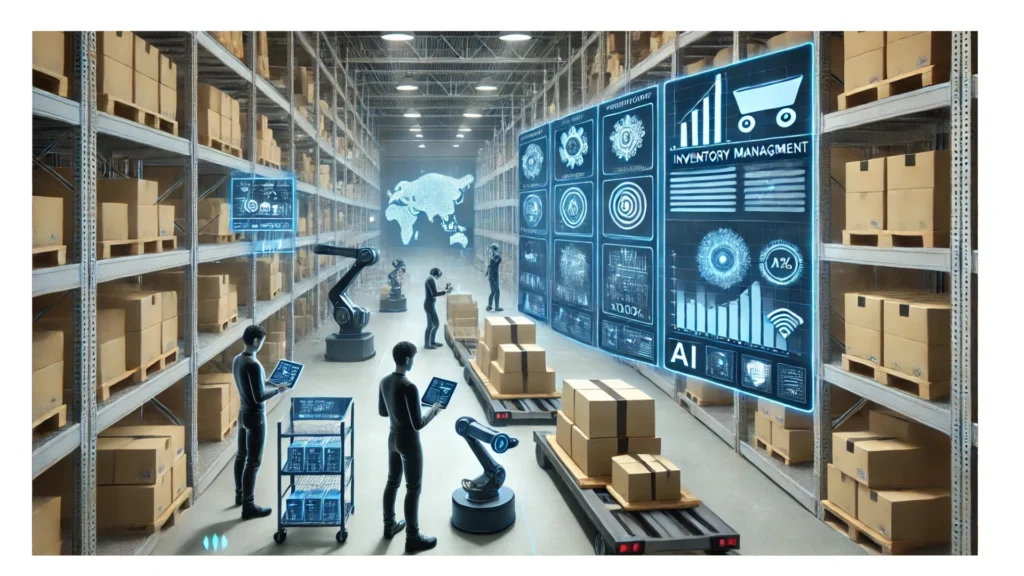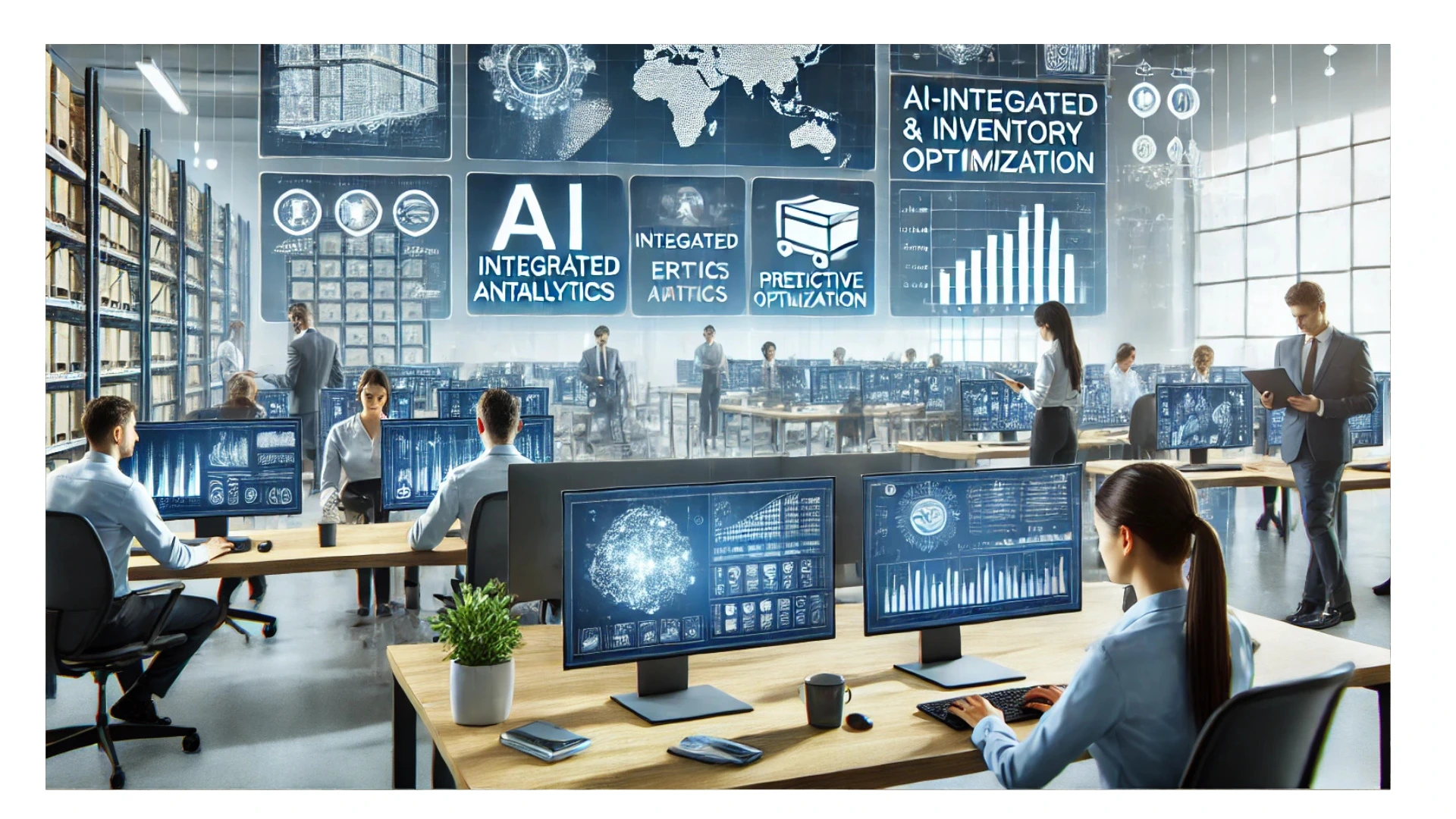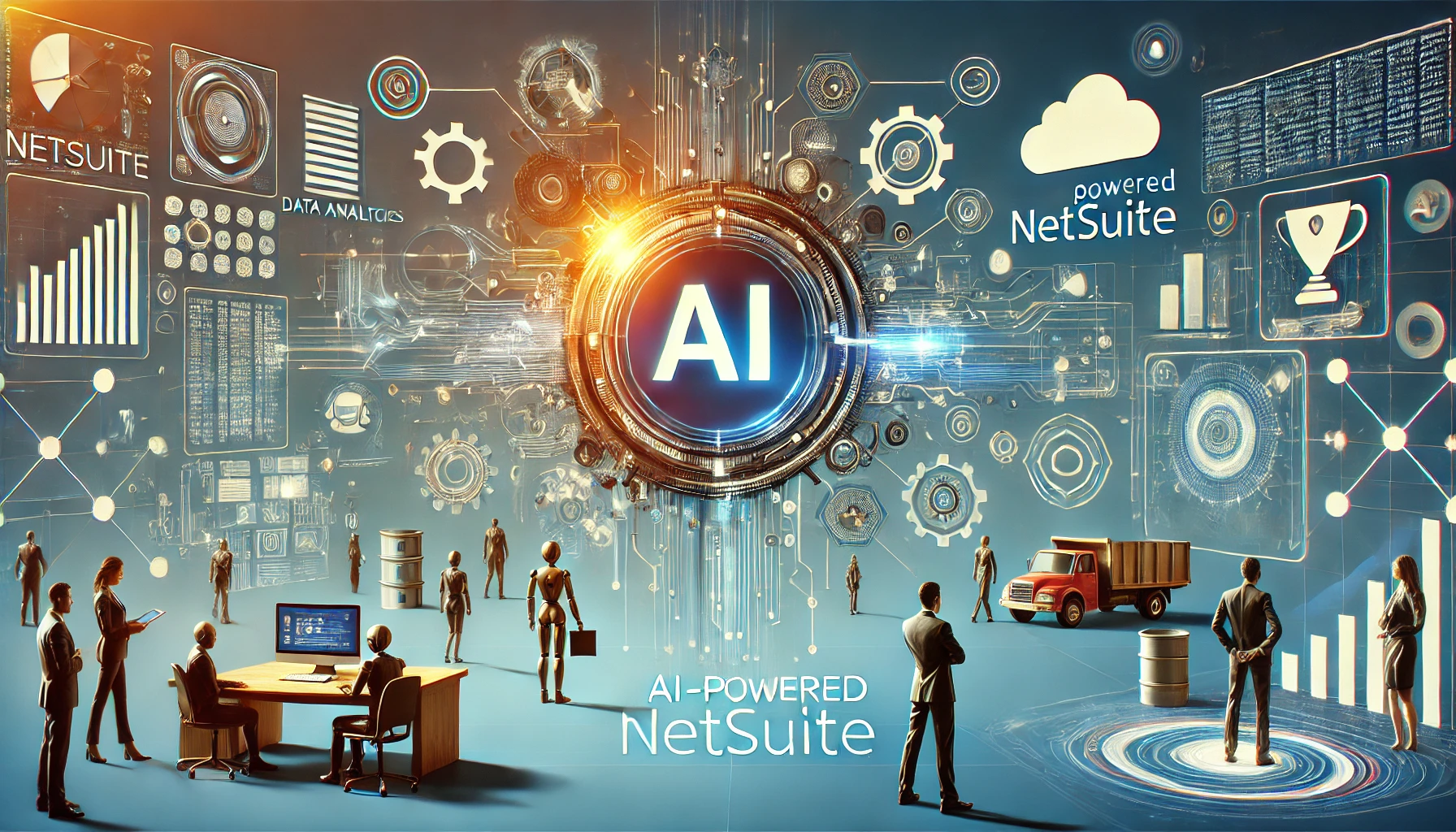In this highly competitive business environment, it goes without saying that the role of AI in NetSuite ERP systems is changing the ways organizations conduct their businesses. One of the major and leading cloud-based ERP solutions is NetSuite, which is evolving by embedding AI to help organizations streamline processes, maximize efficiency, and make data-driven decisions. This blog takes a deep look into how AI in ERP, particularly through NetSuite, is revolutionizing the operations of any business and giving companies the technological lead.
Table of Contents
ToggleUnderstanding the Basics of AI in ERP
ERP and AI are a perfect blend because ERP can now use intelligent algorithms, machine learning as well as data analytics for automating, streamlining workflows and thus deriving actionable insights out of it. In other words, it is more than simple ERP functionalities as it brings in the probabilities involved, advanced analysis of data, and in-depth support towards decision-making that remains fundamental for a business, not just to be proactively agile but also action-oriented.
Since NetSuite is an ERP that goes by a core data repository, AI is particularly useful to it. Since all data pertaining to modules on financial management, inventory management, human resource management, and customer relationship management modules is consolidated within one system, AI can analyze data holistically to give more accurate insights and optimizations across the board.

Key Areas where AI is Enhancing NetSuite ERP Capabilities
- Financial Management and Forecasting: AI enhances the financial management ability of NetSuite through predictive analytics. With the help of past financial data, AI can predict cash flow trends, optimize cost-cutting opportunities, and produce more accurate revenue forecasts. AI-based financial forecasting reduces manual estimation of time and allows for improved budget accuracy. CFO and financial managers can make more confident decisions based on data.
- Optimization of Inventory and Supply Chain: For companies relying on managing their inventory, the use of AI in NetSuite enables real-time monitoring of the inventory, forecasting of demand, and optimizations of the supply chain. AI algorithms can look at the patterns of demand over time and seasonality to predict future stock levels, minimizing overstocking and stockouts. In addition, AI maximizes the warehouse operations by stocking according to the most efficient fulfillment routes and identifies these paths to save time and cost for the companies.
- CRM Enhancement: NetSuite’s CRM module leverages the power of AI in the statistical analysis of customer data, sentiment analysis, and personalized marketing automation. The tool analyzes customer data to understand predictive behavior, improving the identification of high-value customers for tailored marketing. Thus, it empowers the sales and marketing teams to make smart choices and prioritize leads by designing unique customer journeys that talk to individual needs, therefore increasing customer satisfaction and loyalty.
- Human Resources and Talent Management: AI in NetSuite’s module of human resource consists of talent acquisition, employee engagement, and performance management. Screening resumes, scheduling interviews, and monitoring employee performance are among other services offered by AI, which could make the hiring process easier or even HR processes quite easy to handle.
AI-based employee analytics helps HR persons identify high performers in the future and guide them for career development plans, thus enhancing retention and engagement of talent.
Benefits of AI in NetSuite ERP
- Decision-Making: AI gives actionable insights from tremendous volumes of data across the unified platform of NetSuite. Therefore, decision-makers are no longer confined within the historical reports but now have real-time analytics as well as predictive insights for strategic decisions. This is particularly valuable in forecasting, budgeting, and market trend anticipation.
- Increased Efficiency through Automation: AI can execute the most mundane tasks in NetSuite modules automatically, from inputting data to producing reports. This would allow the employee to do other important work. The automation of mundane processes by AI minimizes the risk of human error in such processes, reduces the speed of workflow, and generally enhances overall operational effectiveness.
- Accuracy in Predictions and Planning: AI will predict with high accuracy like the future sales, inventory, and cash flows among other things. Companies can, therefore, use their resources effectively without any wastage to save time and money since their demand has been aptly determined. Better forecasting allows planning ahead; companies can prepare themselves for any possible disruption.
- Customer Experience: AI makes the NetSuite CRM more responsive by giving companies the capacity to interact with their customers based on behavioral insights. Predictive analytics supports the formulating of tailored marketing campaigns and support interactions that are customer-centric in nature, thereby promoting loyalty as well as long-term engagement.
Real-life application of AI-enabled NetSuite ERP
- Intelligent Financial Planning: AI assists finance teams in streamlining complex processes like budgeting and cash flow management. Finance teams can predict earnings based on specific parameters, detect anomalies, and keep track of expenses in real-time with AI-based data analytics. That smart budgeting can turn financial plans to be significantly more accurate and bring a healthier bottom line to the table.
- Automated Expense Management: With AI-powered modules of NetSuite modules, the burden of cost accounting was eased down from the accounting teams through automated recognition and categorization of expenses. Finance teams can easily track spending trends with the help of AI tools that recognize patterns and categorize expenses accurately and help identify savings opportunities.
- Demand-Driven Supply Chain: The predictive algorithms of AI can take data from sales history, external market trends, and seasonality and make decisions with all that information. In this way, stock levels remain at a mark where they are optimal between surplus stock and stockouts. Moreover, it will help negotiate with suppliers by providing data-driven projections.
- Higher Compliance and Detection of Frauds: NetSuite AI enables an organization to maintain compliance by ensuring that any suspicious transactions are automatically flagged. Thus, fraud prevention occurs with automatic monitoring without having to personally check.
Future of AI in NetSuite ERP
That means for ERP, the utilization would be much greater since it becomes more defined and complex, like with most current emerging trends such as NLP and even AI-powered chatbots, slowly reaching mainstream and eventually allowing users to interact with NetSuite in conversational AI. Therefore, the complex applications would prove easier for non-technical employees to benefit from instead of going through hours of training.
Another, with the advancement of machine learning algorithms, the AI capabilities of NetSuite will be enhanced, and predictive models can be more accurate and actionable. Future integrations may help in extending predictive maintenance in manufacturing, personalization advancement, and even more analytics for complex industries.
How to Implement AI in Your NetSuite ERP Strategy
In considering how to implement AI in your NetSuite system, businesses should take the strategic route:
- Identify key areas in which to deploy AI-a place you can start to begin implementing AI, whether it be finance, CRM, or even supply chain in your general operations.
- Take advantage of AI empowered modules in NetSuite. There are various modules of NetSuite that are already AI empowered. Teach your team and employees to use these tools in order to reap the most from them.
- Invest in the Training of Your Employees. Let your staff know how AI works through NetSuite so they make informed decisions using data and tailor the process.
Monitor and Fine-Tune: AI solutions require continuous fine-tuning to be effective. Periodically check and re-evaluate AI models operating in the NetSuite application and fine-tune them if necessary to meet your business performance objectives.
Conclusion
In a way, AI is changing the game of NetSuite ERP by enhancing data-driven insights, making operations smoother, and making companies more proactive and responsive in business processes. When businesses are envisioning the future, they should certainly consider embracing AI as part of their NetSuite ERP, which makes their forecasting so much more accurate, and enhances decision-making, and, most importantly, adds a layer of personalization to it respecting the customer experience. As the world continues to grow with AI, the capabilities of these advancements are well-positioned for NetSuite users to drive growth, efficiency, and innovation within their organizations.
This is not about software upgrading; rather, it involves making a new possibility in business visions, which can actually lead to building the future of an ERP system in a strategic approach to AI with NetSuite so that it can adapt to change and thrive in it.



